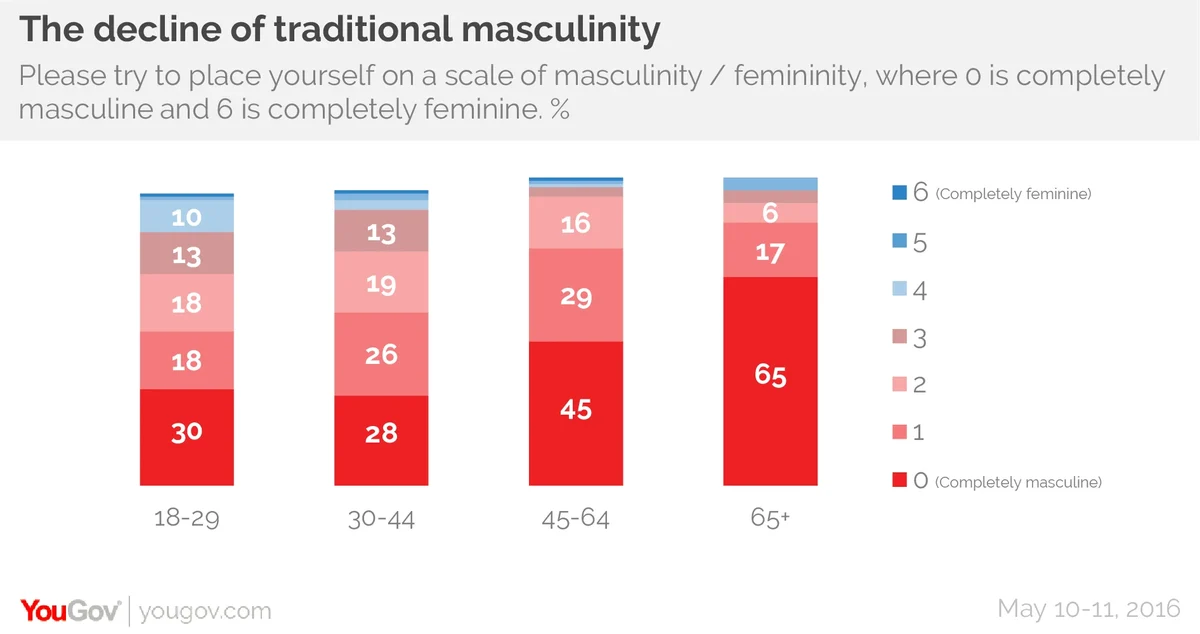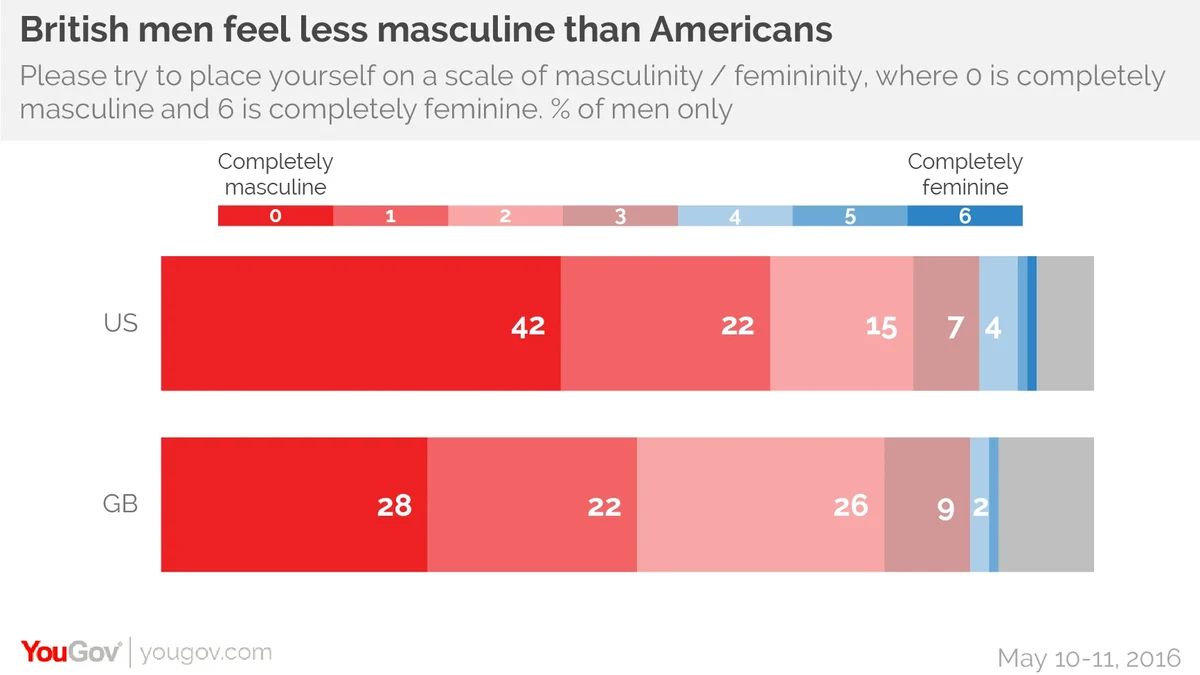Younger American men are noticeably less likely than older men to say that they are 'completely masculine'
Few areas of American life have seen as much change as the world of gender and sexuality. When the youngest retirees were born in the early 50s, women were expected to stay in the home and nurture the children while men were expected to serve as breadwinners, aloof from many of the mundane household tasks and joys. Today, in 2016, gender roles have been transformed as the percentage of men who stay home to take care of children increases and women begin to beat men in academic achievement and are slowly closing the income gap.
Research from YouGov shows that the muscular masculinity of decades past is a fading feature of American life for the young. Americans were asked to rate themselves on a scale of 0 to 6, there 0 is 'completely masculine' and 6 is 'completely feminine'. 65% of men over the age of 65 say that they are 'completely masculine, while only 28% of men aged 30 to 44 and 30% of men aged 18 to 29 say the same. Among under-30s, 13% put themselves halfway between the masculine and the feminine, while 12% say that they are at least slightly feminine. Only 4% of over-65 men say that they are at all feminine.

Women show a very similar split along age, but women are slightly less likely than men to describe themselves as atypical. 88% of American women describe themselves as feminine, compared to 82% of American men who describe themselves as masculine.
This survey was also conducted in the UK. In the UK men and women are less likely to describe themselves as completely masculine or feminine, and the age gap is even more pronounced. Among British men 56% of over-65s describe themselves as 'completely masculine - only 9% lower than in the US. Among British men aged 18 to 24, however, only 2% say that they are 'completely masculine'.

Full poll results and margin of error can be found here.









